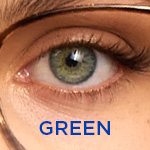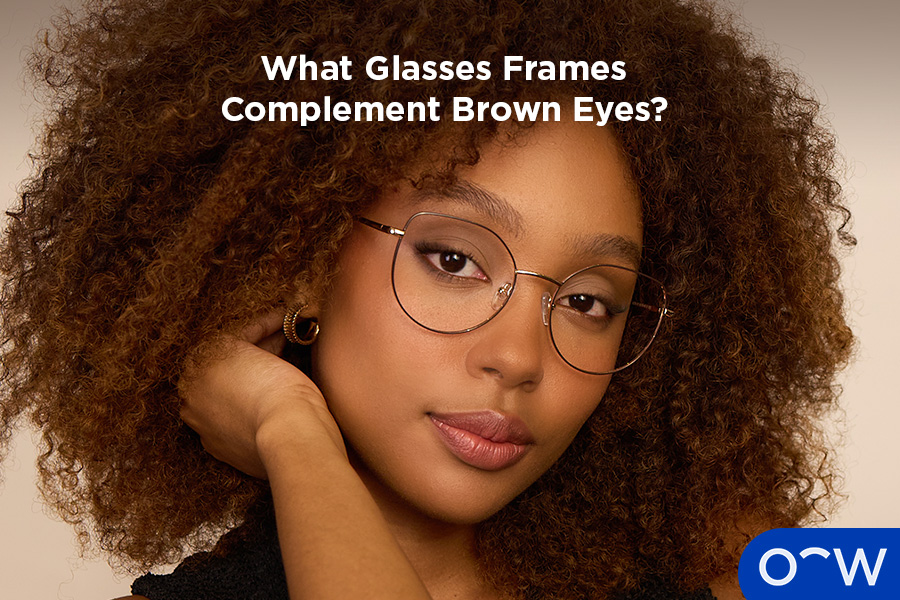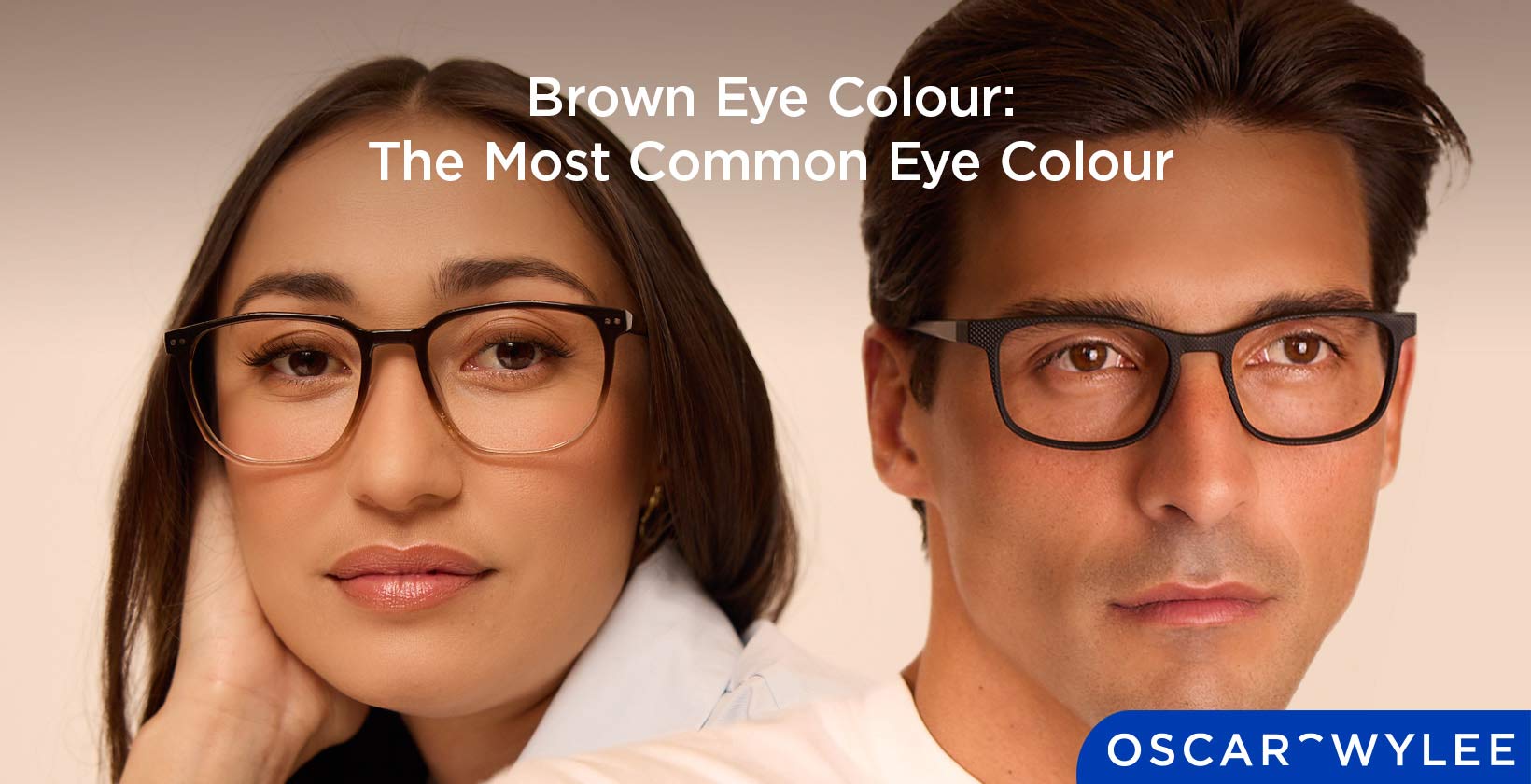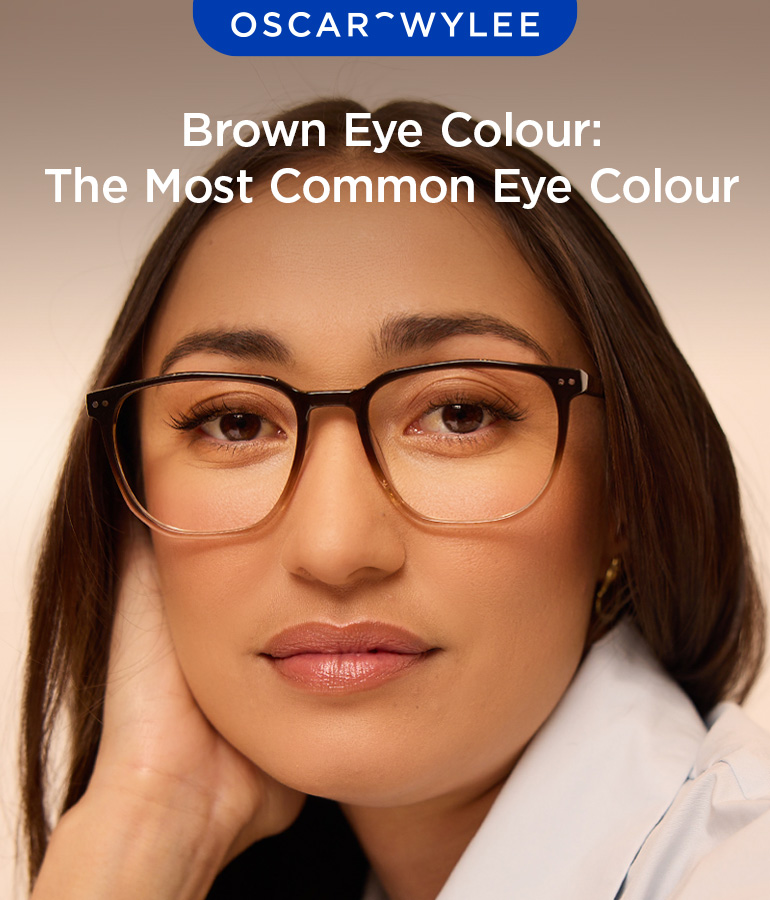Brown Eye Colour: The Most Common Eye Colour
Published on February 24th, 2025
Brown eye colour is the most common eye colour in the world, occurring in at least 50% of the global population. Brown eyes are caused by high levels of the melanin pigment in the iris. Types of brown eyes include dark brown eyes, light brown eyes and hazel eyes. One of the benefits of having brown eyes as opposed to lighter eyes such as blues or greens, is that the high levels of melanin may protect the eyes better from the sun and UV rays. People with brown eyes may also have a lower incidence of macular degeneration, eye cancer and diabetic retinopathy. Keep reading to learn more about brown eyes.
Different Types of Eye Colours
There are several different types of eye colours including brown, amber, green, hazel, blue, and grey.






What is Brown Eye Colour?
Brown eyes are the most common eye colour, developing from a high amount of melanin pigment in the iris. Brown eyes can come in varying shades from a dark, rich brown, to light, more golden colour, as well as hazel. Brown is the most common eye colour in the world, with over half the global population believed to have brown eyes.
What are the Different Brown Eye Colours?
There are many different shades of brown eye colour including dark brown, light brown and hazel. The different brown eye colours are listed below.
- Dark brown: Dark brown eyes refer to eyes that are a deep, warm shade of brown. Some brown eyes can look so dark, they may be mistaken for black in some lights.
- Light brown: Light brown eyes may resemble a honey or amber colour.
- Hazel: Hazel refers to eye colour that is a mix of brown, green and gold.
What Causes Brown Eye Colour?
High levels of melanin pigment in the iris are the genetic cause of brown eye colour. Melanin is a pigment created by cells in the body called melanocytes. Melanin contributes to hair, skin and eye colour. Melanin in the eyes is located in the iris, or the coloured part of your eye. According to the American Academy of Ophthalmology, the iris is made up of two layers of muscles. The back layer will generally have some degree of melanin, even if the eyes are not brown. If a person also has high levels of melanin in the front layer of muscle, the eyes will appear brown.
What are the Genetics Behind Brown Eye Colour?
The genetics behind brown eye colour is a complex process involving several genes, with one of the major components a chromosome called chromosome 15. According to the National Library of Medicine, there is a gene within this chromosome called OCA2 that is involved in the creation of a p-protein that helps form melanin.
How does Brown Eye Colour Affect Vision?
Overall brown eye colour does not have a huge effect on how well a person’s vision works, but may impact eye health to some degree. According to the American Academy of Ophthalmology, those with brown eyes may have a lower incidence of macular degeneration, eye cancer and diabetic retinopathy. It is theorised that melanin pigment may offer greater eye protection than those with lighter eyes, but this has not been proven. People with brown eyes may also be at a higher risk of developing cataracts.
What are the Benefits of having Brown Eyes?
There are no huge benefits to having brown eyes over any other eye colour, as eye colour doesn’t have a major impact on how vision works, though it may help with certain areas of eye health. One benefit of brown eyes is that there is a lower incidence of macular degeneration, eye cancer and diabetic retinopathy among people with this eye colour, according to the American Academy of Ophthalmology.
How does Brown Eye Colour Influence Personality?
Brown eye colour does not influence a person’s personality, however, it may influence how other people perceive a person. According to a 2013 study by Kleisner, Priplatova, Frost and Flegr, people with brown eyes were perceived as more trustworthy than those with blue eyes.
Are People with Brown Eyes More Sensitive to Light?
No, people with brown eyes are not more sensitive to light. Light sensitivity refers to pain or discomfort when the eyes are exposed to light. Lighter-coloured eyes, such as blue or green, are more likely to be sensitive to light as they do not have as much melanin pigment as brown eyes.
Can Brown Eye Colour Change Over Time?
Brown eye colour will not typically change over time. Changing eye colour is rare, and according to the American Academy of Ophthalmology, can be caused by things such as iris freckles, an injury to the eye, cataracts or uveitis. These changes are usually temporary and may go away if the underlying condition is treated.
Are Brown Eyes the Most Dominant Eye Colour?
Yes, brown eyes are the most dominant eye colour. Brown eyes are generally considered to be a more dominant gene over blue eyes. It is believed that over 50% of the global population has brown eyes. Some estimates say that his number could be even greater, around 70-80%.
What Makeup Will Complement Brown Eyes?
The makeup that will complement brown eyes mainly revolves around eye make-up, such as eye shadow. Eyeshadow with hints of blues, navy, golds and purples will make brown eyes pop, as they are opposite on the colour wheel and complementary.
What Glasses Frames Complement Brown Eyes?
The glasses frames that complement brown eyes will be frames in colours such as purples, blues, browns and golds, as these will help complement and bring out the warmth in brown eyes. People with brown eyes should choose the glasses colour that they feel complements their particular shade of brown the best, as well as the colour that makes them feel comfortable and best suits their personality. A person can further match their glasses with their outfits to give an overall cohesive look and sense of style. At Oscar Wylee, we have glasses frames in a range of these colours, to help you choose the frames that are the perfect fit for your eye colour.


Can Contact Lenses Enhance Brown Eyes?
There are no contact lenses that can enhance the natural colour of brown eyes. However, there are certain coloured contact lenses that are designed to give the illusion that the iris is a different colour from what it is. Some coloured contact lenses are not proper optical lenses and could pose a health risk, check with your optometrist before using any coloured contact lens.
How do Brown Eyes Differ from Other Eye Colours in Terms of UV Protection?
Brown eyes differ from other eye colours in terms of UV protection, as they may offer slightly more protection due to their elevated levels of melanin. The increased levels of melanin levels found in brown eyes, compared to those with lighter colours such as blue eyes, may provide slightly more protection from the sun. Regardless of the eye colour you have, it is always best to wear sunglasses that are designed to provide UV protection. Extended periods of time in the sun and its UV rays without eye protection can lead to negative effects on the eyes.
How Common are Dark Brown Eyes?
There is no data surrounding how common particular shades of brown eyes are. However, general brown eyes, inclusive of all shades, are the most common eye colour in the world.
Are there Blue-Brown Eyes?
No, blue-brown eyes are not generally an eye colour. A person may have green-brownish eyes, in which case, they would be known to have hazel-coloured eyes. People with heterochromia may have both brown and blue eyes. Heterochromia refers to a condition in which a person has different coloured irises. This may be different colours within the one iris or, more commonly, each eye has a different coloured iris.



